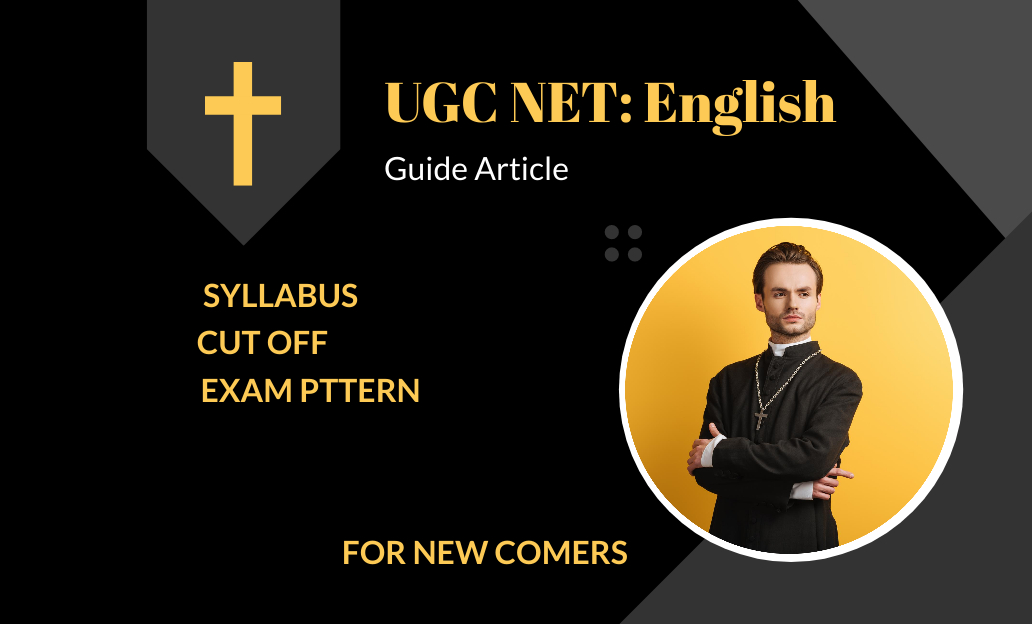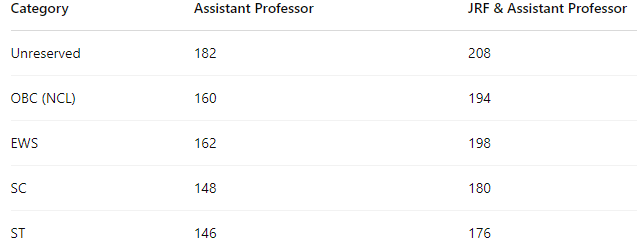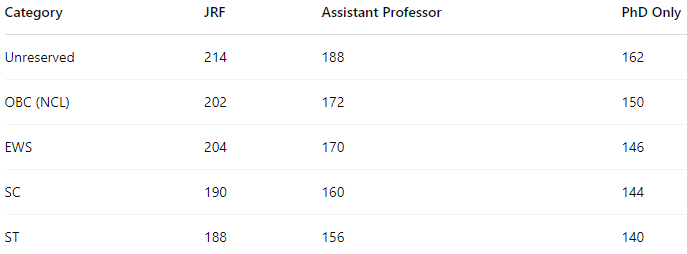If you want to be an assistant professor then you should know the core about this competitive exams. This exam is called as UGC NET. Today I will tell you all about the exam if you are a new student. You need not to read another article after reading this.
Holding
The exam holds twice in a year. It takes in the month of June and December of any year. I mean takes place per 6 months of gap.
Pattern
UGC NET exam has two papers including Paper - 1 and Paper - 2.
Paper - 1 has 100 marks, 50 questions, each question varies 2 marks.
On the other hand, Paper - 2 has 200 marks, 100 questions, each question varies 2 marks.
Each paper varies 10 Units. In Paper - 1, per unit holds 10 marks, and in Paper - 2, per unit carries 20 marks.
The Paper - 1 is based on the "General studies" and Paper - 2 is based on the syllabus paper that you have studied in your MA (for example, English Literature).

For English Honours Students
Syllabus for Paper - 1
Unit-I: Teaching Aptitude
- Teaching: Concept, Objectives, Levels of teaching (Memory, Understanding and Reflective), Characteristics and basic requirements.
- Learner’s characteristics: Characteristics of adolescent and adult learners (Academic, Social, Emotional and Cognitive), Individual differences.
- Factors affecting teaching related to: Teacher, Learner, Support material, Instructional facilities, Learning environment and Institution.
- Methods of teaching in Institutions of higher learning: Teacher centred vs. Learner centred methods; Off-line vs. On-line methods (Swayam, Swayamprabha, MOOCs etc.).
- Teaching Support System: Traditional, Modern and ICT based.
- Evaluation Systems: Elements and Types of evaluation, Evaluation in Choice Based Credit System in Higher education, Computer based testing, Innovations in evaluation systems.
Unit-II: Research Aptitude
- Research: Meaning, Types, and Characteristics, Positivism and Post-positivistic approach to research.
- Methods of Research: Experimental, Descriptive, Historical, Qualitative and Quantitative methods.
- Steps of Research.
- Thesis and Article writing: Format and styles of referencing.
- Application of ICT in research.
- Research ethics.
Unit-III: Comprehension
- A passage of text be given. Questions be asked from the passage to be answered.
Unit-IV: Communication
- Communication: Meaning, types and characteristics of communication.
- Effective communication: Verbal and Non-verbal, Inter-Cultural and group communications, Classroom communication.
- Barriers to effective communication.
- Mass-Media and Society.
Unit-V: Mathematical Reasoning and Aptitude
- Types of reasoning.
- Number series, Letter series, Codes and Relationships.
- Mathematical Aptitude (Fraction, Time & Distance, Ratio, Proportion and Percentage, Profit and Loss, Interest and Discounting, Averages etc.).
Unit-VI: Logical Reasoning
- Understanding the structure of arguments: argument forms, structure of categorical propositions, Mood and Figure, Formal and Informal fallacies, Uses of language, Connotations and denotations of terms, Classical square of opposition.
- Evaluating and distinguishing deductive and inductive reasoning.
- Analogies.
- Venn diagram: Simple and multiple use for establishing validity of arguments.
- Indian Logic: Means of knowledge.
- Pramanas: Pratyaksha (Perception), Anumana (Inference), Upamana (Comparison), Shabda (Verbal testimony), Arthapatti (Implication) and Anupalabddhi (Non-apprehension).
- Structure and kinds of Anumana (inference), Vyapti (invariable relation), Hetvabhasas (fallacies of inference).
Unit-VII: Data Interpretation
- Sources, acquisition and classification of Data.
- Quantitative and Qualitative Data.
- Graphical representation (Bar-chart, Histograms, Pie-chart, Table-chart and Line-chart) and mapping of Data.
- Data Interpretation.
- Data and Governance.
Unit-VIII: Information and Communication Technology (ICT)
- ICT: General abbreviations and terminology.
- Basics of Internet, Intranet, E-mail, Audio and Video-conferencing.
- Digital initiatives in higher education.
- ICT and Governance.
Unit-IX: People, Development and Environment
- Development and environment: Millennium development and Sustainable development goals.
- Human and environment interaction: Anthropogenic activities and their impacts on environment.
- Environmental issues: Local, Regional and Global; Air pollution, Water pollution, Soil pollution, Noise pollution, Waste (solid, liquid, biomedical, hazardous, electronic), Climate change and its Socio-Economic and Political dimensions.
- Impacts of pollutants on human health.
- Natural and energy resources: Solar, Wind, Soil, Hydro, Geothermal, Biomass, Nuclear and Forests.
- Natural hazards and disasters: Mitigation strategies.
- Environmental Protection Act (1986), National Action Plan on Climate Change, International agreements/efforts -Montreal Protocol, Rio Summit, Convention on Biodiversity, Kyoto Protocol, Paris Agreement, International Solar Alliance.
Unit-X: Higher Education System
- Institutions of higher learning and education in ancient India.
- Evolution of higher learning and research in Post Independence India.
- Oriental, Conventional and Non-conventional learning programmes in India.
- Professional, Technical and Skill Based education.
- Value education and environmental education.
- Policies, Governance, and Administration.
Syllabus for Paper - 2
Paper 2: English (Literature)
This paper focuses on English literature and language. The units include:Unacademy
- Drama: Study of various forms and periods of drama.
- Poetry: Analysis of poetry from different eras and regions.
- Fiction and Short Story: Examination of novels and short stories across periods.
- Non-Fictional Prose: Study of essays, biographies, autobiographies, and other non-fictional works.
- Language: Basic Concepts, Theories, and Pedagogy; English in Use: Linguistic theories, language teaching methodologies, and practical usage of English.
- English in India: History, Evolution, and Future: Development and status of English language in the Indian context.
- Cultural Studies: Interdisciplinary field concerned with the role of social institutions in the creation and dissemination of meaning.
- Literary Criticism: Evaluation and interpretation of literary texts.
- Literary Theory Post World War II: Modern and contemporary literary theories developed after World War II.
- Research Methods and Materials in English: Approaches and resources for conducting research in English literature and language.
Cut Off for English
For any exam, Cut off is the crucial thing, if you do not know in details about this then you will be late to qualify the exam. So, you should know all about the cut of UGC NET exam if you want to be a professor.
See the Cut off below, and see the increment of the cut off yearly which is making tough to the exam rapidly. In Cut off section, you will see a "JRF achievement" which is actually an award that gives a high stipend to the PHD students, for the next five years after issuing it.
2023 December Cut Off
See the Cut off chart below:

All the marks of the cut off comes out of 300 marks of total.
2024 June Cut Off
Remember the result of 2024 June Session was published with the percentile score that some of the students can not guess the percentage. I have founded the expected marks.
See the chart below:

2024 December Cut Off
In this year, NTA has opened a new section of the exam. They have opened a new Cut off slot for PHD students. Although, anyone can do PHD after quallifying NET or JRF, but they had opened an external slot for the PHD students which can be valid for one year before issuing for PHD. On the other hand, NET certificate will be valid for lifetime.
See the chart below:

In conclusion, the Cut off on all the section is getting increment 4 to 7 percent by passing per session (each 6 months). So, you should keep in mind to get qualified as soon as possible. Perday it is being tougher.
If you have any doubt again then ask here.